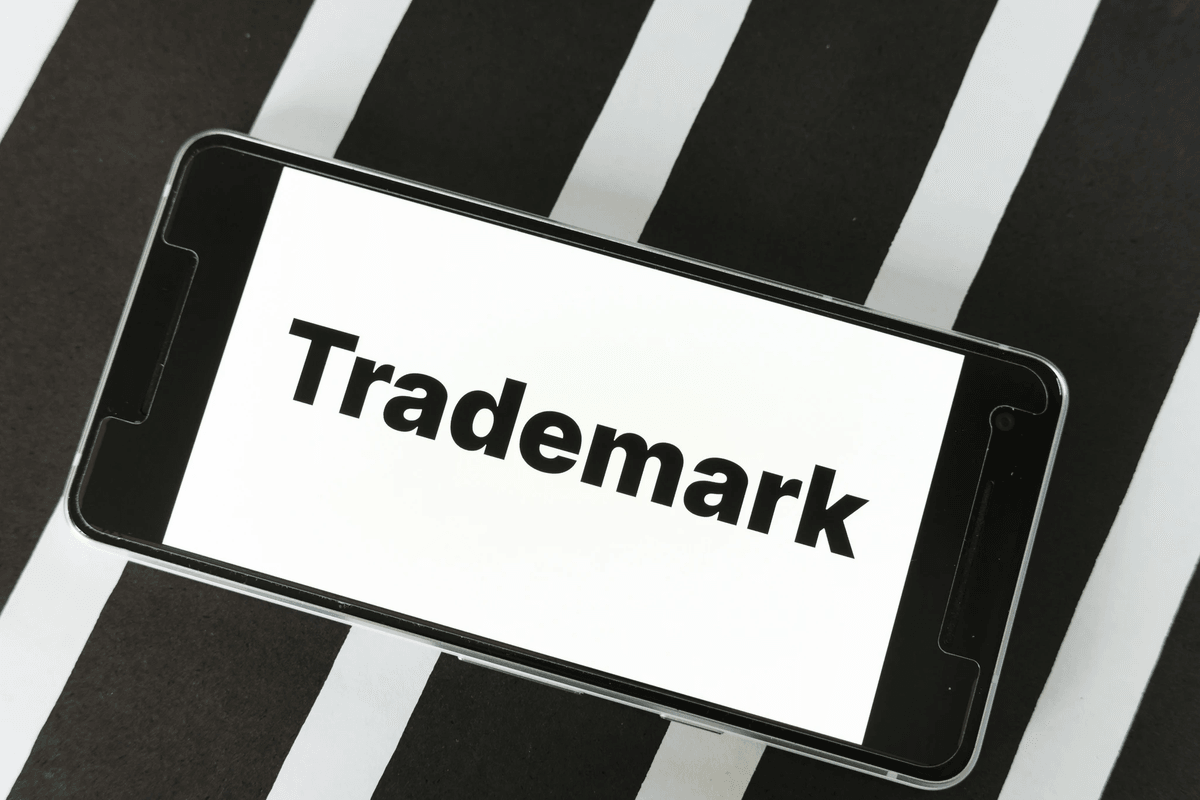Introduction
In the rapidly evolving landscape of global commerce, understanding Intellectual Property Rights (IPR) in China has become essential for businesses aiming to protect their innovations and brand identity. With China's significant role in international trade, the effective management of these rights not only safeguards a company's assets but also enhances its competitive edge. As such, navigating the complexities of what kind of IP can be protected by China Customs is a vital step for any entity looking to thrive in this dynamic market.
Understanding Intellectual Property Rights in China
Intellectual Property Rights serve as the backbone for safeguarding creative works and inventions, ensuring that businesses can reap the benefits of their innovations without fear of infringement. In China, IPR encompasses various categories including trademarks, copyrights, patents, and trade secrets—each with distinct legal protections and enforcement mechanisms. By comprehensively understanding these rights, companies can better position themselves to leverage local laws effectively while minimizing risks associated with IP theft or counterfeiting.
Importance of Monitoring Your IP Rights
Monitoring your Intellectual Property Rights is akin to having a security system for your business assets; it’s essential for early detection of potential infringements and unauthorized use. Regular oversight not only helps maintain the integrity of your brand but also enables you to take proactive measures against violations before they escalate into costly disputes. Moreover, being vigilant allows businesses to stay informed about market trends and competitor activities related to their intellectual property.
Overview of China's IP Protection Landscape
China's IP protection landscape is multifaceted and continuously evolving, reflecting both domestic priorities and international pressures for stronger enforcement mechanisms. The government has made significant strides in enhancing regulations around IPR; however, challenges still persist due to varying levels of compliance across different regions and industries. Understanding the types of China Customs IP protection available is crucial for businesses seeking proactive protection strategies that align with local practices while ensuring their intellectual property remains secure amidst ongoing challenges.
Types of IP That China Customs Protects

China's customs authorities play a crucial role in safeguarding various types of Intellectual Property Rights (IPR). Understanding the specific types of IP that can be protected is essential for businesses looking to navigate the complexities of the Chinese market. This section delves into registered trademarks, copyright protection, and patent safeguarding under China's customs framework.
Overview of Registered Trademarks
Registered trademarks are one of the most vital forms of Intellectual Property Rights that China Customs protects. A trademark serves as a brand identifier, distinguishing goods or services from those of competitors. By registering your trademark with customs, you enhance its visibility and enforceability against potential infringements, ensuring that your brand remains intact in a competitive landscape.
In China, the process for registering a trademark involves submitting an application to the China National Intellectual Property Administration (CNIPA). Once registered, it becomes easier to monitor and enforce your rights through customs channels. This proactive approach not only deters counterfeiting but also reinforces consumer trust in your brand.
Moreover, effective management of registered trademarks can lead to significant commercial advantages. Companies with strong trademark protections are often viewed more favorably by consumers and partners alike. Therefore, leveraging the protection provided by China Customs is essential for maintaining your brand’s integrity and market position.
Importance of Copyright Protection
Copyright protection is another critical component within China's IP landscape that deserves attention. It covers original works such as literature, music, art, software, and other creative expressions—ensuring creators maintain control over their intellectual contributions. By understanding what kind of IP can be protected by China Customs regarding copyright issues, businesses can better safeguard their creative assets.
The importance of copyright protection cannot be overstated; it not only prevents unauthorized use but also allows creators to monetize their work effectively. In a rapidly evolving digital environment where content is easily replicated and shared globally, securing copyright through registration provides legal leverage against infringement claims. Additionally, collaborating with customs authorities enhances monitoring efforts against potential violations.
Furthermore, an effective copyright strategy can foster innovation within organizations by encouraging creativity without fear of theft or misuse. Businesses that prioritize copyright registration are better positioned to capitalize on their creations while ensuring compliance with local laws concerning Intellectual Property Rights in China. Thus, investing time in understanding this aspect significantly benefits long-term business success.
Safeguarding Patents with China Customs
Patents represent another critical pillar within the realm of Intellectual Property Rights protected by China Customs—specifically inventions or processes deemed novel and non-obvious. The patent system encourages innovation by granting inventors exclusive rights for a specified period; however, these rights must be actively enforced to remain effective against potential infringements.
To safeguard patents effectively through customs channels requires thorough knowledge about what kind of IP can be protected under Chinese law—as well as understanding enforcement mechanisms available through local authorities like customs officials who monitor imports and exports for violations related to patented technologies or designs. Registering patents not only strengthens legal standing but also equips businesses with tools necessary for proactive protection strategies against infringement attempts.
Moreover, collaboration between patent holders and customs officials enhances surveillance activities aimed at identifying counterfeit products entering markets illegally—a significant concern given China's status as both a manufacturing hub and consumer market powerhouse globally! By taking advantage of these protective measures offered by Chinese customs authorities regarding patents specifically tailored towards innovative solutions—companies can fortify their competitive edge while minimizing risks associated with intellectual property theft.
What Kind of IP Can Be Protected by China Customs?

Navigating the landscape of Intellectual Property Rights in China can be a daunting task, especially when trying to understand what kind of IP can be protected by China Customs. This section delves into the categories of intellectual property that are eligible for protection, including trademarks, copyrights, and patents. Understanding these categories is essential for any business looking to safeguard its innovations and creative works in China.
Defining Eligible Intellectual Property Categories
When considering what kind of IP can be protected by China Customs, it’s crucial to identify which categories fall under their jurisdiction. Primarily, registered trademarks are a key focus, as they help businesses establish brand identity and prevent counterfeiting. Additionally, copyrights protect original works such as literature and art, while patents safeguard inventions and new technologies—each playing an important role in the broader spectrum of Intellectual Property Rights.
In essence, if your IP falls into any of these categories—trademarks, copyrights, or patents—you have a solid foundation for seeking protection through China Customs. However, it's not just about registration; understanding the nuances within each category is vital for effective enforcement against infringements. Thus, businesses must engage proactively with the process to ensure comprehensive coverage under China's stringent IP laws.
Role of Trade Secrets in IP Protection
While registered forms of Intellectual Property Rights receive much attention in discussions about what kind of IP can be protected by China Customs, trade secrets also hold significant value. Unlike trademarks or patents that require formal registration processes and public disclosure, trade secrets rely on confidentiality agreements and internal security measures to maintain their status. This makes them an attractive option for businesses looking to protect sensitive information without revealing it to competitors.
Trade secrets encompass formulas, practices, processes or designs that provide a competitive edge—think Coca-Cola's secret recipe! In terms of protection through customs enforcement mechanisms like surveillance activities against counterfeit goods or unauthorized imports, trade secrets may not have direct customs protections but still play a crucial role in overall business strategy regarding Intellectual Property Rights management. Companies must remain vigilant about safeguarding these invaluable assets as part of their proactive protection process.
Advantages of IP Registration with Customs
Registering your Intellectual Property Rights with China Customs offers numerous advantages that extend beyond mere compliance with legal requirements. First off is enhanced visibility; having your IP registered means it’s on the radar during customs inspections—this significantly increases the chances that infringing goods will be intercepted before they reach consumers' hands. Moreover, this proactive approach allows companies to take advantage of China's robust enforcement actions against potential violations.
Another significant benefit is the streamlined process during disputes involving infringement claims; being able to present documented evidence from customs enhances credibility when pursuing legal action against offenders. Furthermore, engaging local legal experts familiar with both Chinese law and international standards can lead to more effective strategies tailored specifically for your business needs regarding types of China Customs IP protection available today! Ultimately, registering your intellectual property rights with customs serves as both a shield against infringement and a sword for asserting ownership rights effectively.
Process of Proactive Protection for Your IP

When it comes to safeguarding your Intellectual Property Rights in China, a proactive approach is essential. The process of registering your IP with China Customs can seem daunting, but breaking it down into manageable steps makes it much easier. By understanding the necessary actions, documentation, and monitoring techniques, you can effectively protect your valuable assets.
Steps to Register Your IP with China Customs
The first step in the process of proactive protection is to gather all relevant information about your Intellectual Property Rights. This includes identifying which types of IP can be protected by China Customs, such as trademarks and patents. Once you have this information, you will need to file an application with the appropriate customs authority and pay any required fees.
Next, it's vital to ensure that your registration meets all legal requirements set forth by Chinese law. This may involve providing detailed descriptions of your IP and its uses, along with evidence of ownership or registration in other jurisdictions. After submitting your application, be prepared for a potential review period during which customs officials will assess the validity and scope of your request.
Finally, once registered, you should maintain regular communication with China Customs to keep them informed about any changes related to your Intellectual Property Rights. This ongoing relationship will help ensure that they are aware of any new developments or potential infringements on your rights. Remember that this proactive approach is crucial for effective monitoring and enforcement against unauthorized use.
Key Documentation Required for Registration
To successfully navigate the process of registering your IP with China Customs, you'll need several key documents at hand. First and foremost is proof of ownership; this could include registration certificates or other legal documents that establish your claim over the intellectual property in question. Without proper proof, customs may not recognize or enforce your rights effectively.
In addition to ownership documentation, you'll also need detailed descriptions of the types of IP being registered—whether they are trademarks or patents—and how they are used commercially within China’s market landscape. Providing clear examples helps customs understand what needs protection under their jurisdiction better than vague claims ever could!
Lastly, don't forget about compliance paperwork; this includes any forms required by Chinese customs authorities outlining specifics about how you plan to monitor and enforce these rights proactively once registered. Having all necessary documentation ready not only speeds up the registration process but also demonstrates professionalism on your part—making it more likely that customs will take swift action if needed later on!
Tips for Effective Monitoring of Your IP
Once you've gone through the initial steps in protecting Intellectual Property Rights through registration with China Customs, effective monitoring becomes paramount in maintaining those rights over time! One useful tip is establishing a regular review schedule where you check online platforms and marketplaces for potential infringements related specifically to YOUR brand name or products—this way nothing slips through unnoticed!
Utilizing technology can also significantly enhance how well you monitor breaches; consider setting up alerts whenever someone mentions keywords associated directly with YOUR intellectual property across social media channels! Additionally leveraging local legal expertise ensures you're always up-to-date regarding both domestic laws AND international regulations affecting trade practices involving YOUR intellectual property.
Lastly—don’t underestimate networking opportunities! Engaging within industry groups can provide insights into common infringement trends while fostering relationships that lead towards collaborative efforts aimed at defending collective interests against piracy threats across borders effectively!
Leveraging Resources from AC&E

When navigating the complex landscape of Intellectual Property Rights in China, having the right resources can make all the difference. AC&E offers tailored legal solutions that focus on IP monitoring, ensuring that your rights are always protected. With their expertise, you can stay ahead of potential infringements and maintain a robust strategy for safeguarding your assets.
Tailored Legal Solutions for IP Monitoring
AC&E understands that each business has unique needs when it comes to Intellectual Property Rights protection. Their tailored legal solutions are designed to address specific concerns related to what kind of IP can be protected by China Customs. By customizing monitoring strategies, they help businesses effectively track their trademarks, copyrights, and patents against potential violations.
In addition to personalized strategies, AC&E employs advanced technologies and methodologies to enhance IP surveillance efforts. This proactive approach not only identifies potential risks but also enables swift action against infringers when necessary. By leveraging these tailored solutions, companies can significantly reduce the risk of losing valuable intellectual property in a competitive market.
Expertise in International Trade Disputes
Navigating international trade disputes requires specialized knowledge and experience—qualities that AC&E possesses in abundance. Their team is well-versed in handling various types of China Customs IP protection issues, ensuring that clients are well-represented during disputes related to Intellectual Property Rights infringement. With an intricate understanding of both Chinese law and international regulations, they provide invaluable support throughout the process.
Moreover, AC&E’s expertise extends beyond mere representation; they also offer strategic guidance on how to avoid common pitfalls associated with international trade disputes. By understanding what kind of IP can be protected by China Customs and leveraging this information effectively, businesses can minimize risks associated with cross-border transactions. This proactive approach allows companies to focus on growth while knowing their intellectual assets are secure.
Comprehensive Support for IP Registration Processes
Registering your intellectual property with China Customs is essential for effective protection against infringement; however, the process can be daunting without proper guidance. AC&E provides comprehensive support throughout every step of the registration process for Intellectual Property Rights—ensuring all documentation is prepared accurately and submitted timely. Their knowledgeable team helps clients navigate the complexities involved in registering trademarks, copyrights, and patents effectively.
Furthermore, understanding the types of China Customs IP protection available is crucial during registration; AC&E assists businesses in selecting the most appropriate options based on their specific needs and goals. They also offer ongoing support post-registration by providing insights into monitoring processes and enforcement actions against infringements as needed. With their comprehensive services at hand, companies can rest assured knowing they have a strong ally protecting their intellectual assets.
Types of China Customs IP Protection

When it comes to safeguarding your Intellectual Property Rights in China, understanding the various types of protection offered by China Customs is essential. The customs authority plays a pivotal role in monitoring and enforcing IP rights, which can significantly impact how effectively you can protect your assets. By familiarizing yourself with these protective measures, you can make informed decisions about the Process of Proactive Protection for your IP.
Overview of Surveillance Activities by Customs
China Customs employs a range of surveillance activities aimed at identifying potential infringements on Intellectual Property Rights. This includes monitoring shipments for counterfeit goods and conducting inspections at ports and borders to ensure compliance with registered trademarks and patents. By actively engaging in these surveillance efforts, customs officials help create a deterrent effect against potential infringers, making it increasingly difficult for counterfeit products to enter the market.
Enforcement Actions Against Infringements
Once an infringement is detected, China Customs takes swift enforcement actions to protect Intellectual Property Rights effectively. These actions may include seizing counterfeit goods, issuing fines to violators, or even pursuing legal action against those who infringe on registered IP rights. The enforcement process underscores the importance of registering your IP with customs; without this step, it becomes challenging to initiate effective actions against those who violate your rights.
Benefits of Collaborating with Local Legal Experts
Collaborating with local legal experts offers numerous benefits when navigating the complexities surrounding Types of China Customs IP Protection. These professionals possess invaluable knowledge about local laws and regulations related to Intellectual Property Rights that can significantly enhance your ability to protect your assets effectively. Additionally, they can assist in developing a tailored strategy for proactive protection that aligns with both international standards and local enforcement practices.
Conclusion
In the dynamic landscape of China’s market, protecting your Intellectual Property Rights is not just a legal necessity; it's a strategic imperative. Continuous monitoring and proactive protection are essential to safeguard your assets against infringement. By understanding the intricacies of what can be protected by China Customs, businesses can better navigate this complex terrain.
Strategies for Continuous Monitoring of IP Rights
To effectively monitor your Intellectual Property Rights, consider implementing a multi-faceted approach that includes regular audits and leveraging technology. Utilize digital tools that track potential infringements online and establish a network with local experts who can provide timely insights into any emerging threats. Additionally, maintain an ongoing relationship with China Customs to stay informed about their surveillance activities and enforcement actions against infringements.
Importance of Staying Informed on IP Laws
Keeping abreast of changes in IP laws is crucial for anyone looking to protect their Intellectual Property Rights in China. Laws evolve rapidly, and staying informed allows you to adapt your strategies accordingly, ensuring that you remain compliant while maximizing protection opportunities. Regularly reviewing resources from legal experts or industry associations can help you understand the latest developments regarding what kind of IP can be protected by China Customs.
Final Thoughts on Protecting Your IP in China
Ultimately, safeguarding your Intellectual Property Rights in China requires diligence and proactive measures throughout the entire process of proactive protection. By understanding the types of China Customs IP protection available and actively participating in monitoring efforts, businesses can significantly reduce risks associated with infringement. Remember, effective protection isn't just about registration—it's about creating a culture of vigilance around your intellectual assets.
